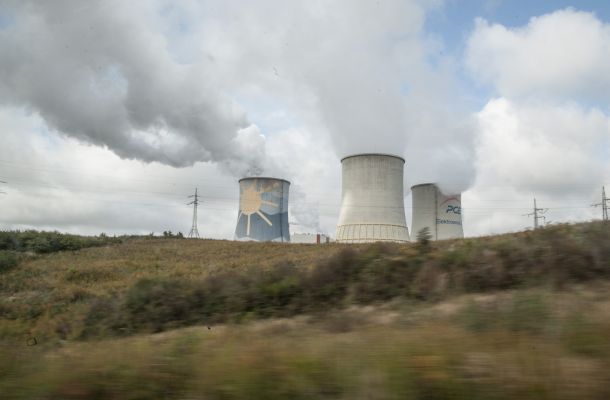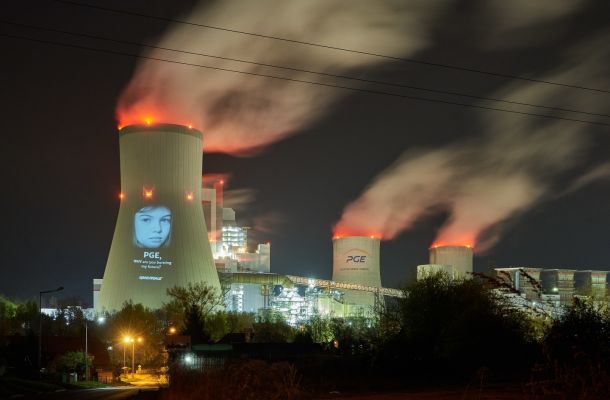Turów: there is an agreement, but there are no solutions for the region
The agreement between Poland and the Czech Republic and its delay is a big cost for the transformation of the region. The Turów complex can be closed in the years 2026-2030 without harming the Polish energy sector. Instead of using EU money for energy transformation, Poland decided to pay tens of millions of euros to extend the period of uncertainty about the region's future.
According to a Czech government spokesperson, Poland and the Czech Republic have signed an agreement in the long-standing dispute over the activity of the Turów lignite opencast mine - which is harmful to the environment and the climate. The agreement has been reached just hours after Advocate General issued an opinion that Poland infringed EU law when prolonging the Turów mining license until 2026 without carrying out an environmental impact assessment - which gives a good idea what the CJEU ruling could look like. The Polish government failed to negotiate the agreement before the lawsuit, as a result of which it will also pay tens of millions of euros in fines to the budget of the European Commission for failure to comply with the CJEU ruling. Electricity from Turów becomes the most expensive energy source in Poland.
The agreement lacks key elements the Turów region needs in terms of setting an appropriate date for closing the Turów energy complex, using EU funds and starting the transformation.
— From the very beginning conflict around Turów was the result of the arrogance of the Polish government and PGE. The agreement between Poland and Czechia will lead only to further delay of the transformation of the region. The agreement does not change the fact that the Turów mine currently does not have a mining license enabling it to continue operating after 2026. Maintaining the illusion by the government and PGE that the mining and burning of coal in Turów will last until 2044 is deceiving the public and already caused exclusion of the region from EU’s Just Transition Fund. The irresponsibility and lack of the coal phase out plan from the government and PGE risks the region falling into an economic demise — said Joanna Flisowska, head of the climate and energy unit at Greenpeace Poland.
The announced agreement does not end Turów's problems. The General Directorate for Environmental Protection still has not issued to PGE a final environmental decision for mining lignite from the open pit, and the concession issued by the Minister of Climate and Environment (Michał Kurtyka) has been successfully contested by the Greenpeace Poland, EKO-UNIA and the Frank Bold Foundation. This means that the functioning of the complex is still being questioned. The conflict around Turów and the uncertain future of the open pit mine did not lead to discussions between the government, PGE and the social side about the need to set an accelerated closing date for the Turów mine and power plant. In the years 2019-2020, the power plant supplied about 3 percent. electricity consumed annually in Poland (and not 7% as falsely claimed by the Polish government and PGE). The region still has no plans to significantly reduce lignite production by 2030, which excludes the possibility of obtaining funds from the EU Just Transition Fund.
— Both the Polish government and PGE refer to the threat to the country's energy security in connection with the accelerated shutdown of the Turów power plant. Meanwhile, the just transition plan for the Lodzkie voivodeship (announced in early June) proves that the transformation of one of the most dependent on lignite regions is possible. The plan assumes shutting down the Bełchatów power plant in 14 years at the latest — the largest lignite-fired power plant in Poland and Europe (responsible in 2020 for 16.5% of domestic electricity consumption in Poland) and the Bełchatów and Szczerców open-pit mines. Employment in the Bełchatów complex is significantly higher than in the Turów complex. This shows how irresponsible are the plans of the government towards the inhabitants of the Turów region — adds Tomasz Waśniewski, President of the "Development YES — Open-pit Mines NO" Foundation.
— Experts clearly indicate that the Turów complex could finish production as early as in 2026-2030. Today's technological solutions make it possible to replace Turów with renewable energy sources, which may be more cost-effective due to the rising prices of CO2 emission allowances. We should strive to move away from coal as quickly as possible. The well-planned transformation will be primarily beneficial for the Zgorzelec region, which can potentially receive multi-million EU funds as part of the transformation plan. The citizens from the mining regions already expect politicians to take such decisions — comments Paweł Pomian, member of the board of the EKO-UNIA Ecological Association.
- The government will probably present the concluded agreement as a great success. However, we must not forget that Turów is an example of the government remaining in the coal and energy lobby. Instead of opting for renewable energy sources, we have a law written on our knees that is unfavorable for prosumers and the lack of laws supporting the development of wind energy onshore. We also have a socially and economically irrational agreement for coal mining until 2049 or a concession for Turów until 2044. Instead of reducing emissions, we are still throwing millions of tons of CO2 into the air, instead of developing green technologies and using all available resources for a just transition, so as to move away from burning coal by 2030 and achieve climate neutrality in line with science, we ridicule ourselves internationally by signing in Glasgow agreement to abandon coal, which the Polish government has immediately questioned. I am afraid that this "success" of the new minister will mean that the government, regardless of the damage that the climate crisis is already causing to the national economy and to Poles, will remain stuck with coal. It is acting against the will of society and threatens the health and life of all of us, and it takes a chance of safe future for the youngest - comments Krzysztof Jędrzejewski, political spokesman of the Polish Climate Coalition.
- The penalties have been calculated and are legally payable. Will they be deducted after the Czechs withdraw their complaint? This will depend on the political will of the European Commission and is beyond legal consideration. Nevertheless, the Commission has instruments to make this deduction even after the Czechs have withdrawn the complaint - said Hubert Smoliński, lawyer from the Frank Bold Foundation.
Honza Groh, CC BY-SA 3.0 via Wikimedia Commons
Popularne Artykuły
PGE myths vs reality
Why are you burning our future?
Polish prime minister dismisses for the truth about Turów
About Us
Our organizations jointly counteract the expansion of the open-cast Turów lignite mine in Poland for the benefit of local communities, nature and climate. We support civic activities undertaken by the international community at the interface of the Czech Republic, Germany and Poland. We strive to make the lignite-dependent Bogatynia enter the path of energy transition as well as economic and social transformation.





